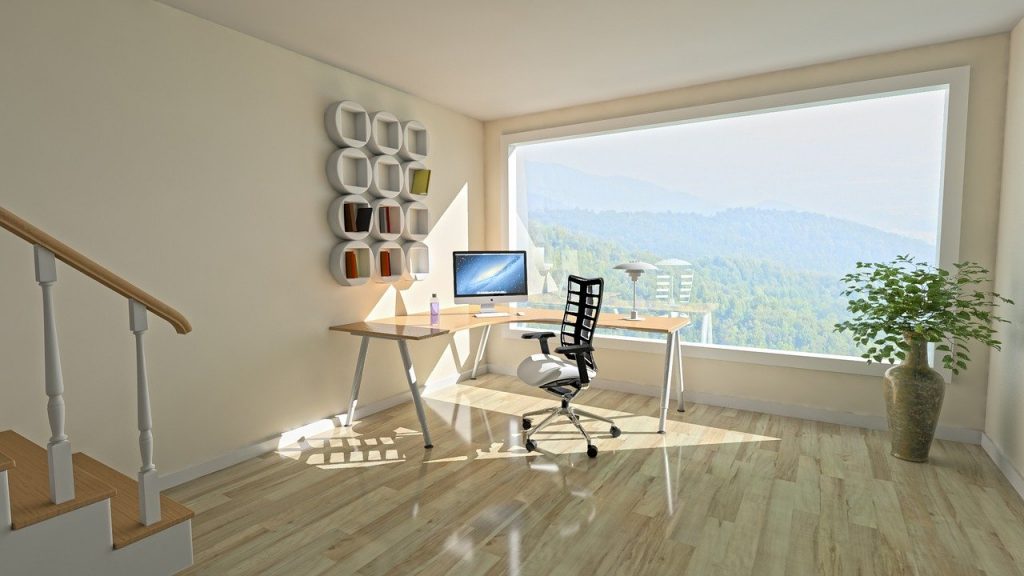Expenses and Benefits – Homeworking

It looks like we will stay at home for another six months. The Prime Minister, Boris Johnson has said “We must take action to suppress the disease” We are once again asking office workers who can work from home to do so.
Some of the Freelancers, Sole Traders, Director only Limited Company owners, managers are already working from home. Since the outbreak of Covid-19 millions of people have started working from home. According to the Office for National Statistics, in April 2020, 46.6% of people in employment worked from home. *1.
In this article, we will focus on freelancers and the director-only Limited Company owners as they are an employee of their Limited Companies.
If you work from home as an employee (Directors) or as a freelancer, you can claim some of your home expenses towards your business and save tax.
Sometimes we will look at the subject from the Companies perspective as companies will be an Employer in our examples.
Some people might claim more expenses than they can claim, of course, this is not allowed. Some people claim less or nothing towards their business and they pay more tax and lose money.
We like to open four windows to explain this subject more detailed:
A. Claiming Home expenses which you do not need to justify
B. Claiming Home expenses with your proportion, calculations
C. Claiming Home expenses as The Director only Limited Company Owner
D. Claiming Home expenses as an employee
A: Claiming Home expenses which you do not need to Justify
You can claim home expenses if you work from home 25 hours per week or more. HMRC allows you to claim a flat-rate amount based on the hours you work from home. *2. If you choose this method, you are not required to keep any records for these claims. *3 (Section 316A ITEPA 2003)
For Example: If you work 100 or more hours from home after the outbreak of Covid-19, you can claim a £26 per month fixed fee towards your business.
You can transfer this amount from your business bank account to the personal bank account with the reference “Home Expenses”.
B: Claiming Home expenses with your proportion, calculations
If you claim your home expenses with your proportion and calculation you have to justify your calculation and keep relevant records.
You can claim the same amounts suggested above for rent because your rent payments are fixed payments. If you do not work from home, you still have to pay your rent to your landlord or towards the lenders as a mortgage if you are the owner of the house.
The same method we use for internet and telephone fixed rental fees. It means you can not claim these expenses towards your business.
For Electricity, Gas, Water payments we suggest you keep records, just in case if HMRC asks you to prove your claims. You can compare the total of your utility bills before and after you started working from home to see the difference and calculate the amount as below example:
Example:
– You used to pay £150 for your all utility bills earlier
– After working from home, bill payments have been increased to £200
– Your home has four rooms and you use one of them solely for business
– You can divide an extra £50 by four and claim £12.5 as an expense
– You can transfer this amount from your business bank account to a personal bank account with the reference “Home Expenses” or “Use of Home as Office”.
C: Claiming Home expenses as The Director only Limited Company Owner
If you are the director for your own limited company, we have to consider a couple more things.
You can choose option A or B to claim your home expenses. Directors are usually claiming a fixed amount for their rent payments, like an example from option A and they can proportion their utility bills and they have to justify these claims, keep records to prove and support their claims.

Sometimes directors arrange a contract with their own limited company to work remotely, this is ok too but better to be careful what to claim. If the directors claim more expenses than they are allowed, they have to pay extra NI and Tax as they get extra benefits from their own company. We will focus on this subject more below.
In Practice sometimes directors do not agree with HMRC and they want to claim more rent payments to themselves. They have to be very careful about this. If you use one room solely for your business at your own home and pay rent to yourselves please have a look at the below example:
Example:
– Your home has 5 rooms and you pay £1500 mortgage each month
– You have decided to pay £1500/5= £300 rent a month to yourselves for the room you use
– These payments will be an expense to your business and you will save 19% of £300 from corporation tax
– But this will also an income to yourselves and this rent payment have to include in your self-assessment tax calculations, at the end you might pay more tax than 19% for this £300 it depends on your income level
– Other methods to claim these extra personal incomes are with P11D or Within Payroll, PAYE but this is for another article subject. *4.
– If you use one of these rooms solely for business, your local council might ask you to pay business rates for this room, not a council tax. Paying business rates means, the room you use for your business is your office, work premises anymore and when you sell your house, you will not be allowed to get Capital Gain Tax exemption. *5.
D: Claiming Home expenses as an employee
If you are an employee or the director for your own company and if you are working from home (due to Covid-19), we have a few important points to remind you as an addition to option C.*6.
As an employee or director of your own limited company:
- Employer (also Limited Company as an Employer of the Director) can provide a mobile phone and a sim card to an employee and this is tax-free (It is an expense to the Company)
- If an employee pays for broadband already, the employer cannot claim extra expenses for this broadband. If an employer buys broadband, it is allowed but it has to be limited to private use.
- If an employer buys equipment like table, laptop, office stationery for business purposes only, they can be an expense to the employer. If an employee uses these items for private use apportionment has to be done to pay related tax and NICs.
As we all see this subject is not easy to explain with one article, there are so many points that we could not even mention. Especially if an employee gets benefits from the employer, this is the same for the director who claims more expenses from their own limited company or freelancers who claim more expenses than they are allowed to. How to let HMRC knows about these extra claims, is it ok to claim all via self-assessments? Do you need to submit these claims via the P11d form? Or can you add these extra claims to your payroll (claim within your PAYE)? I believe it is always better to get advice from someone who knows about these subjects.
If you need any help with your accounting, please contact us.
Accountancy Assist Ltd

- https://www.ons.gov.uk/employmentandlabourmarket/peopleinwork/employmentandemployeetypes/bulletins/coronavirusandhomeworkingintheuk/april2020
- https://www.gov.uk/simpler-income-tax-simplified-expenses/working-from-home
- https://www.gov.uk/hmrc-internal-manuals/employment-income-manual/eim01476
- https://www.gov.uk/expenses-and-benefits-homeworking/what-to-report-and-pay
- https://www.gov.uk/tax-sell-home
- https://www.gov.uk/guidance/check-which-expenses-are-taxable-if-your-employee-works-from-home-due-to-coronavirus-covid-19#type-of-equipment-service-or-supply






